As we observed International Women’s day on Friday, under the theme ‘The Gender Agenda: Gaining Momentum’, we were reminded of the contribution female vocalists have made to the early development of Jamaica’s popular music.
Their contribution, in helping to shape the island’s music, and the inspiration they have provided for future generations of female vocalists, is many times underestimated.
When it is realised that they were operating in a male-dominated field, their success becomes even more remarkable.
Perhaps the name that would come quickest to mind when this topic is mentioned is Marcia Griffiths.
Dubbed the queen of Jamaican reggae, she was, and still is, the best known and most durable female personality in Jamaican popular music.
Griffiths entered the Jamaican music scene as a nine-year-old, on one of the Byron Lee-promoted Easter morning concerts at the Carib Theatre in 1964.
In an interview with me, Griffiths said she would have been 10 years old in November of that year.
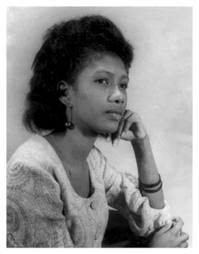
“I did one song on the show – Carla Thomas’ No Time To Loose, and it literally brought the house down. I then went straight down to Studio One that same day and recorded my first song – Wall Of Love,” Griffiths explained.
During the next couple of years, Clement ‘Sir Coxson’ Dodd, the legendary Studio One producer, groomed her, by coupling her with male artistes like Jeff Dixon, Tony Gregory, Bob Marley and Bob Andy, before she exploded on the music scene in 1967 with her first hit, Feel Like Jumping.
Written by Bob Andy, with musical arrangements by keyboardist Jackie Mittoo, the rocksteady piece, although a bit weak lyrically, was enhanced by its deep rumbling beat and became a No. 1 song.
Her follow-ups Mark My Word, Melody Life, Tell Me Now and Truly, were no less powerful, as she capped her early achievements with the 1971 Harry J.-produced, British top-ten hit, Young Gifted And Black.
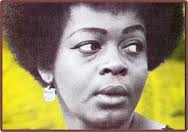
Another lady, Phyllis Dillon, 10 years Griffiths senior, blazed a trail many other females found difficult to follow.
Most melodious voice
Perhaps Jamaica’s most melodious female voice in early popular music, she honed her musical talent by first doing concerts in her hometown, Linstead, where she was born on December 27, 1944.
Her earliest exposure to the public came by way of performances with her home-based Vulcans Band and later at Kingston’s nightclubs and theatres.
Dillon’s exploits brought her to the attention of the larger-than-life record producer, Duke Reid, for who she recorded here first and biggest hit,Don’t Stay Away in 1966.
Kevin O’Brien Chang, in his book Reggae Routes, describes Dillon’s delicate phrasing of the innocently naïve lyrics – ‘If you knew how much I love you, how much I need you, you wouldn’t stay away’, as blending with the effortless rhythms to create rocksteady’s most haunting evocation of girlish first love.
Dillon’s other early hits included One Life To Live, Love That A Woman Can Give A Man, Perfidia, and Don’t Touch My Tomato.

But from a commercial standpoint, the early female vocalist that was perhaps most important to Jamaica’s popular music, as we continue to focus on International Women’s Day, was Millie Small.
Her recording of My Boy Lollipop, a remake of the 1957 Marjie Day R&B hit, topped the British charts in June 1964 and penetrated many others. Small thus became the first Jamaican (male or female) to expose the island’s music to an international audience.
The 15-year-old was taken to England by music mogul Chris Blackwell to record for his fledgling label, Island Records.
The recording literally opened the floodgates of opportunity for many other Jamaicans.
International Women’s Day, which has been observed since the early 1900s, has also helped to bring into focus the work of several of Jamaica’s earliest pioneers of female vocalising.
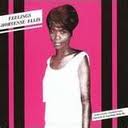
Hortense Ellis was one such vocalist, who operated under the shadow of her more illustrious brother – Alton.
Yet, ironically, she came in ahead of him on one of the Vere John’s Opportunity Talent shows, where she began her career in the 1950s.
Jamaica’s best female vocalist
Born in Trench Town in the mid-1940s, Hortense appeared in four finals. She was also a two-time awardee for Jamaica’s best female vocalist during the 1960s.
Her hits included Shall Sing and Brown Girl In The Ring for producer Ken Lack (1960); I’ll Come Softly, I’m Just A Girl and Why Birds Follow Spring. Later, she had the classic cut, Unexpected Places, which demonstrated her expansive vocal range.
Enid Cumberland, one-half of the due Keith and Enid, had the most popular R&B recording during the pre-ska era with the Trenton Spence-backed, Worried Over You, which topped the Jamaican charts in 1960. Her follow-ups, Send Me, It’s Only A Pity and What Have I Done, were just as popular.
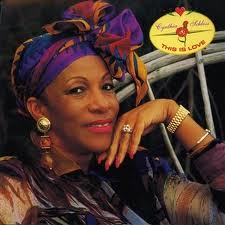
Millicent ‘Patsy’ Todd’s dominant role in duet with Derrick Morgan and Stranger Cole, contributed in no small way to the success of the ska hits,Housewives Choice, Don’t You Worry, When I Call Your Name andCome Back.
Cynthia Schloss, wife of noted musicologist Winston ‘Merritone’ Blake, rose to prominence with an array of love songs like Surround Me With Love, You Look Like Love and her biggest hit, Love Forever, earning for her the title ‘songbird’.
Judy Mowatt and Rita Marley, apart from being outstanding solo artistes, became famous, along with Marcia Griffiths, as Bob Marley’s backing chorus, parading under the nomenclature ‘The I-Threes’.
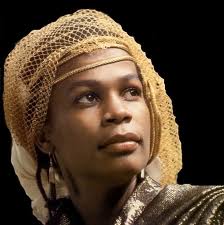
The list is inexhaustible and omissions are unavoidable, but mention has to be made of Carlene Davis (The First Word In Memory Is Me); Lorna Bennett (Breakfast In Bed); Norma Frazer (The First Cut Is The Deepest); J.C. Lodge (Telephone Love and Someone Loves You Honey); Nadine Sutherland (Until and Action); Pam Hall (Hard To Be A Woman); Sheila Hylton (The Bed’s Too Big Without You); Adina Edwards (Don’t Forget To Remember Me); Tanya Stephens (Hang Up The Phone); Sophia George (Girlie Girlie); and Kentrist Fagan, aka ‘Girl Satchmo’ (Darling).
Fagan acquired the name by imitating the blues singer, Louis ‘Satchmo’ Armstrong.
A vendor-turned-singer, Fagan migrated to England in the 1960s, through the efforts of the great music promoter Vere Johns.
broyal_2008@yahoo.com



You must log in to post a comment.